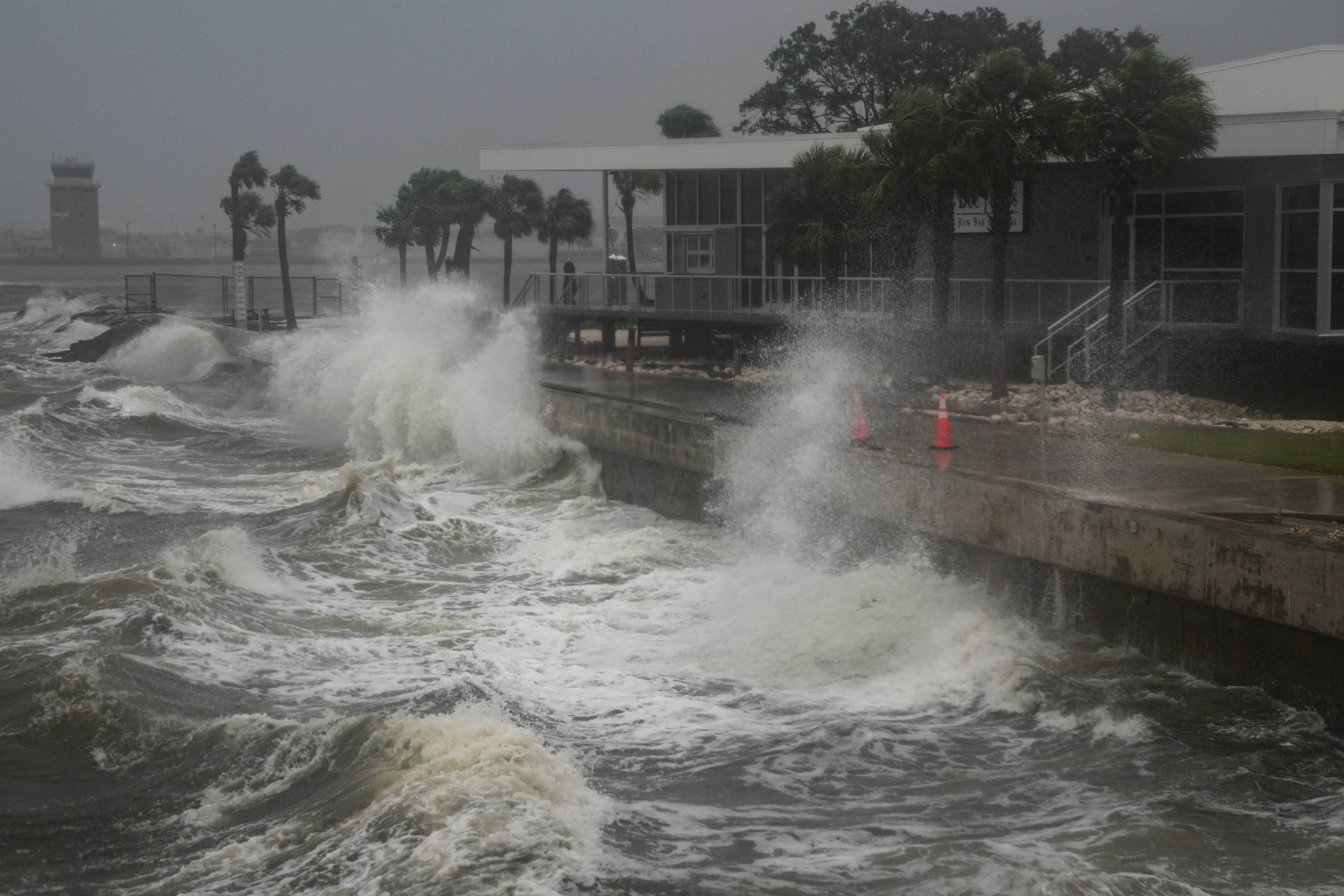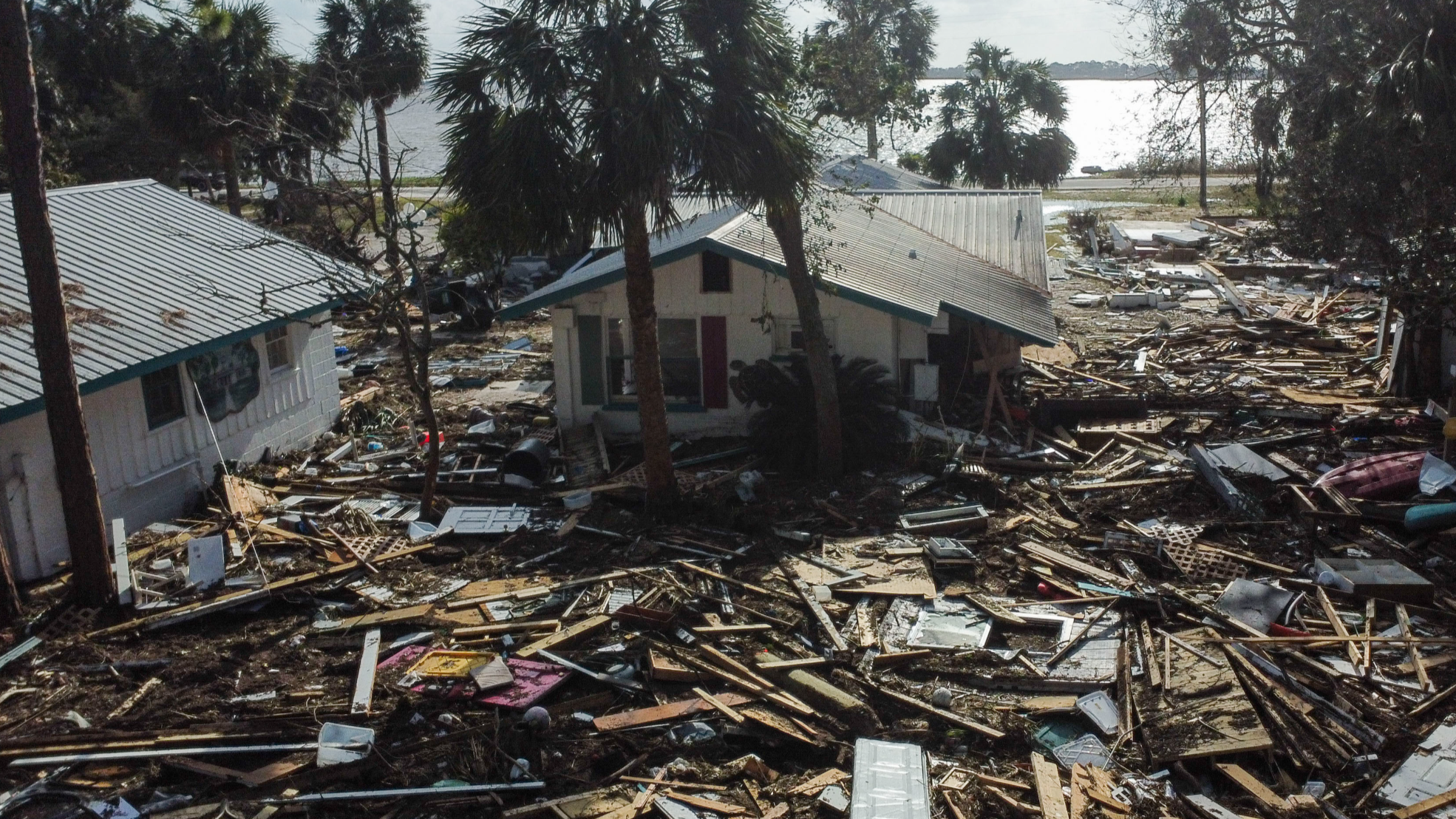
LOS ANGELES - Climate change made Hurricane Helene more powerful and dangerous, and the United States is likely to have more storms like Helene in the future as temperatures continue to warm, experts warned.
Human-caused climate change boosted devastating Hurricane Helene's rainfall by about 10 percent and intensified its winds by about 11 percent, according to a new study published on Wednesday.
The study was conducted by researchers with the World Weather Attribution (WWA), an international network of scientists who conduct research on the impact of climate change on major weather events.
ALSO READ: Extremely dangerous Hurricane Milton makes landfall on Florida's west coast
Helene, a deadly Category 4 hurricane that made landfall on Sept 26, caused widespread and devastating floods across US states including Florida, North Carolina, South Carolina and Georgia.
Helene brought high winds, extreme rainfall and storm surges to coastal areas.
The death toll from Helene has climbed to at least 232 people across six states, making it the second-deadliest hurricane to hit the US mainland in the past 50 years, only ranking behind Hurricane Katrina in 2005.
ALSO READ: 'Catastrophic' Hurricane Milton heads to Florida Gulf Coast
The influence of climate change on tropical cyclones is more complex compared to other types of extreme weather events as impacts are driven by both heavy rainfall and extreme winds, according to experts.
In addition, the surrounding conditions, in particular the sea surface temperatures in the Gulf of Mexico and wider basin, are crucial for the formation of hurricanes.

A key factor in Helene's intensity was extraordinarily high water temperatures in the Gulf of Mexico. Sea surface temperatures reached about 85 degrees Fahrenheit as Helene was forming, according to WWA researchers.
They used several different approaches to investigate the influence of climate change on different aspects of Helene.
READ MORE: US hospitals face IV fluid shortage after hurricane hits key supplier factory
They found that the sea surface temperatures over the track of Helene have been made about 200 to 500 times more likely due to the burning of fossil fuels.
Experts warned if the world continues to burn fossil fuels, causing global warming to reach 2 degrees Celsius above pre-industrial levels, devastating rainfall events will become another 15 to 25 percent more likely.
Climate change is enhancing conditions conducive to the most powerful hurricanes like Helene, with more intense rainfall totals and wind speeds. Scientific findings show that Atlantic tropical cyclones are becoming wetter under climate change and undergoing more rapid intensification.
READ MORE: Rescue, relief efforts continue in hurricane-hit southeastern US as toll tops 180
Another powerful and catastrophic storm, Hurricane Milton, is now heading toward Florida as a major, life-threatening storm.
Currently a Category 4 hurricane, Milton is growing in size as it is expected to make landfall Wednesday night.
As warming continues, storms like Helene and Milton will become more common, researchers warned, urging communities to prepare for more intense storms in the future.


